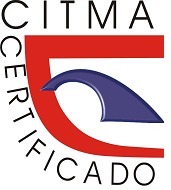Synthetic Index of Cybersecurity of the Tourism Faculty at the University of Havana
Keywords:
cibersecurity; dimensions; indicators; synthetic index; university.Abstract
Cybersecurity is responsible for the protection of the computer structure and the information stored in the computer equipment of organizations in different sectors of society. The purpose of this research is to evaluate the maturity of cybersecurity in the Faculty of Tourism of the University of Havana by means of a synthetic index. This index, based on key dimensions and indicators such as top management commitment, cybersecurity education and awareness, as well as the implementation of technologies and management systems, allows identifying strengths and weaknesses in the context of facing the cybersecurity risks that have intensified in recent years in Cuban universities. Methods such as analysis-synthesis were applied to integrate the results from different sources; inductive-deductive methods were used to draw general conclusions based on specific observations; the statistical method facilitated the validation of the data obtained, while tools such as Excel, SPPS and RStudio supported the quantitative analysis. On the other hand, the fieldwork and the focus group provided valuable qualitative information, and the logical scheme of the synthetic index served to structure the calculation of the cybersecurity maturity indicators. The research reflects positive results for the faculty, the overall index, dimensions and indicators show a high maturity. It demonstrates the importance of overcoming existing weaknesses such as the allocation of clear responsibilities and understanding of obligations and risks to prevent threats to information security.
References
Delgado Martorell, S. (2023, diciembre 14). El 85% de las universidades ha sufrido ciberataques en el último año. La Razón. https://www.larazon.es/emergente/85-universidades-sufrido-ciberataques-ultimo-ano_20231214657aa7b029f31800017626e2.html
Ganesan, R., Jajodia, S., Shah, A., y Cam, H. (2016). Dynamic scheduling of cybersecurity analysts for minimizing risk using reinforcement learning. ACM Transactions on Intelligent Systems and Technology (TIST), 8(1): 1-4. https://doi.org/10.1145/2882969
Granma (29 de mayo de 2024). Cuba fortalece su ciberseguridad como una labor prioritaria. https://www.granma.cu/cuba/2024-02-03/cuba-fortalece-su-ciberseguridad-como-una-labor-prioritaria
IT User Teach y Business (2023, noviembre 21). El sector de la enseñanza superior continúa a la cabeza de los ciberataques. https://www.ituser.es/seguridad/2023/11/el-sector-de-la-ensenanza-superior-continua-a-la-cabeza-de-los-ciberataques
Jaiyen, S., y Sornsuwit, P. (2019). A New Incremental Decision Tree Learning for Cyber Security based on ILDA and Mahalanobis Distance. Engineering Journal, 23(5): 71-88. http://dx.doi.org/10.4186/ej.2019.23.5.71
Ministerio de Ciencia, Innovación y Universidades. (2024). El Gobierno lanza 32 cátedras universidad-empresa en Inteligencia Artificial y ciberseguridad que movilizarán cerca de 50 millones de euros. https://www.universidades.gob.es/el-gobierno-lanza-32-catedras-universidad-empresa-en-inteligencia-artificial-y-ciberseguridad-que-movilizaran-cerca-de-50-millones-de-euros/
Nowersztern, A., Paz, S., Kagelmacher, D., Berenfus, F. C., Libedinsky, P., Ribagorda, A., Tapiador, J., Fuentes, J. M. D., y González, L. (2021). Programa formativo en ciberseguridad para América Latina y el Caribe. IDB Publications. https://doi.org/10.18235/0003659
Ramírez Montealegre, B. J. (2016). Medición de madurez de ciberseguridad en pymes colombianas, Tesis Doctoral, Universidad Nacional de Colombia. https://repositorio.unal.edu.co/handle/unal/57956
Sánchez, Y., Barrera, D., y Reyes, Y. (2022). Metodología para la gestión de ciberincidentes en las universidades cubanas. Revista Cubana de Ciencias Informáticas, 16(4): 101-113. http://scielo.sld.cu/pdf/rcci/v16n4/2227-1899-rcci-16-04-101.pdf
Torres, C., Joshua, D., Mata, P., y Joel, A. (2024). Evaluación de las buenas prácticas de ciberseguridad en los estudiantes universitarios: un estudio en la Universidad Politécnica Salesiana sede Guayaquil, Tesis de grado, Universidad Politécnica Salesiana. http://dspace.ups.edu.ec/handle/123456789/27867
Universidad de León (2024). Máster Universitario en Investigación en Ciberseguridad (online). https://www.unileon.es/estudiantes/oferta-academica/masteres/mu-investigacion-ciberseguridad-online
Universidad Rey Juan Carlos (2024). Ingeniería de la ciberseguridad. https://www.urjc.es/estudios/3100-ingenieria-de-la-ciberseguridad
Valencia, A., Bermeo, M. C., Acevedo, Y., Garcés, L. F., Quiroz, J., Benjumea, M. L., y Patiño, J. (2020). Tendencias investigativas en educación en ciberseguridad: un estudio bibliométrico. Revista Ibérica de Sistemas y Tecnologías de la Información (Risti), 225-239. https://www.proquest.com/openview/a2803956d6c8a33be891343ca536dde9/1?pq-origsite=gscholar&cbl=1006393
Venter, I. M., Blignaut, R. J., Renaud, K., y Venter, M. A. (2019). Cyber security education is as essential as “the three R’s”. Heliyon, 5(12): 1-8. https://doi.org/10.1016/j.heliyon.2019.e02855
Von Solms, R., y Van Niekerk, J. (2013). From information security to cyber security. Computers y Security, 38: 97-102. https://doi.org/10.1016/j.cose.2013.04.004
Published
How to Cite
Issue
Section
License
Copyright (c) 2025 Emilio Enrique Guerra Castellón, Edgar Nuñez Torres, Yasser Vázquez Alfonso

This work is licensed under a Creative Commons Attribution-NonCommercial 4.0 International License.












